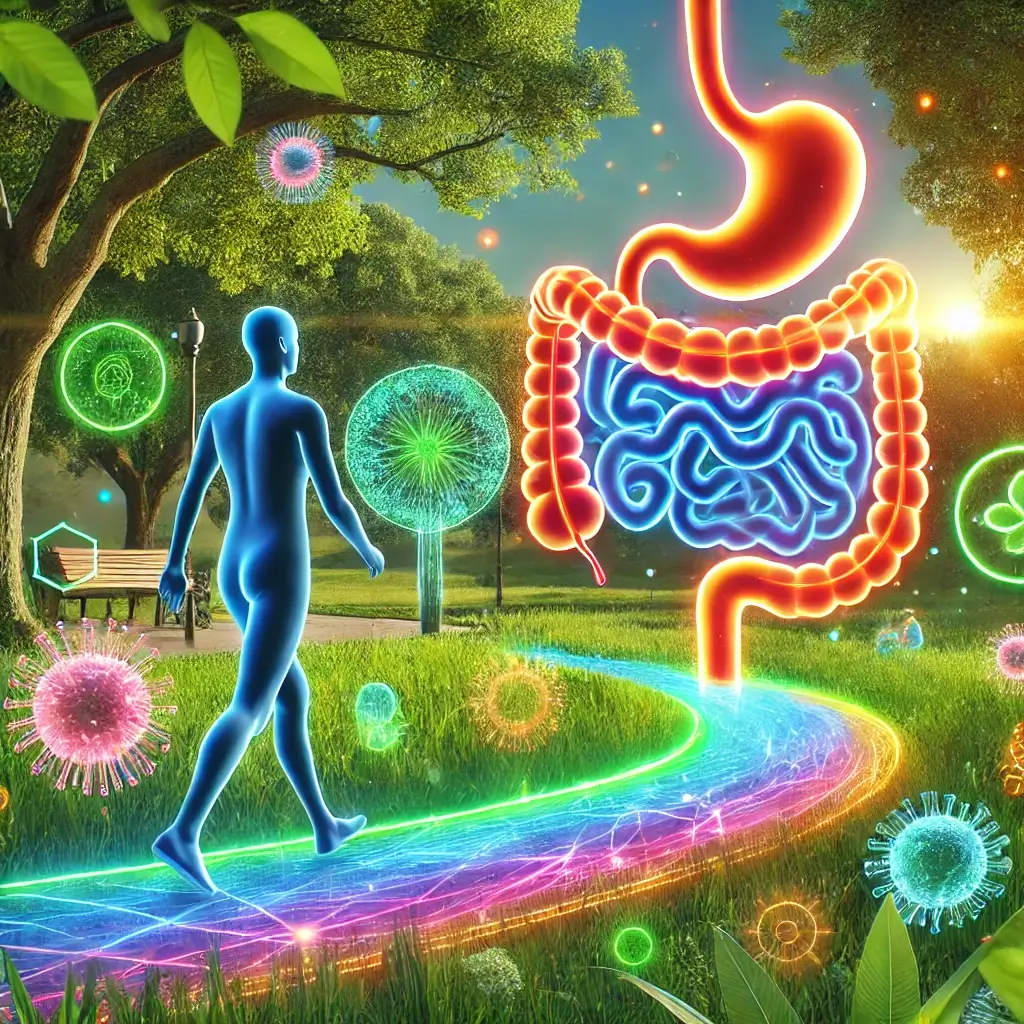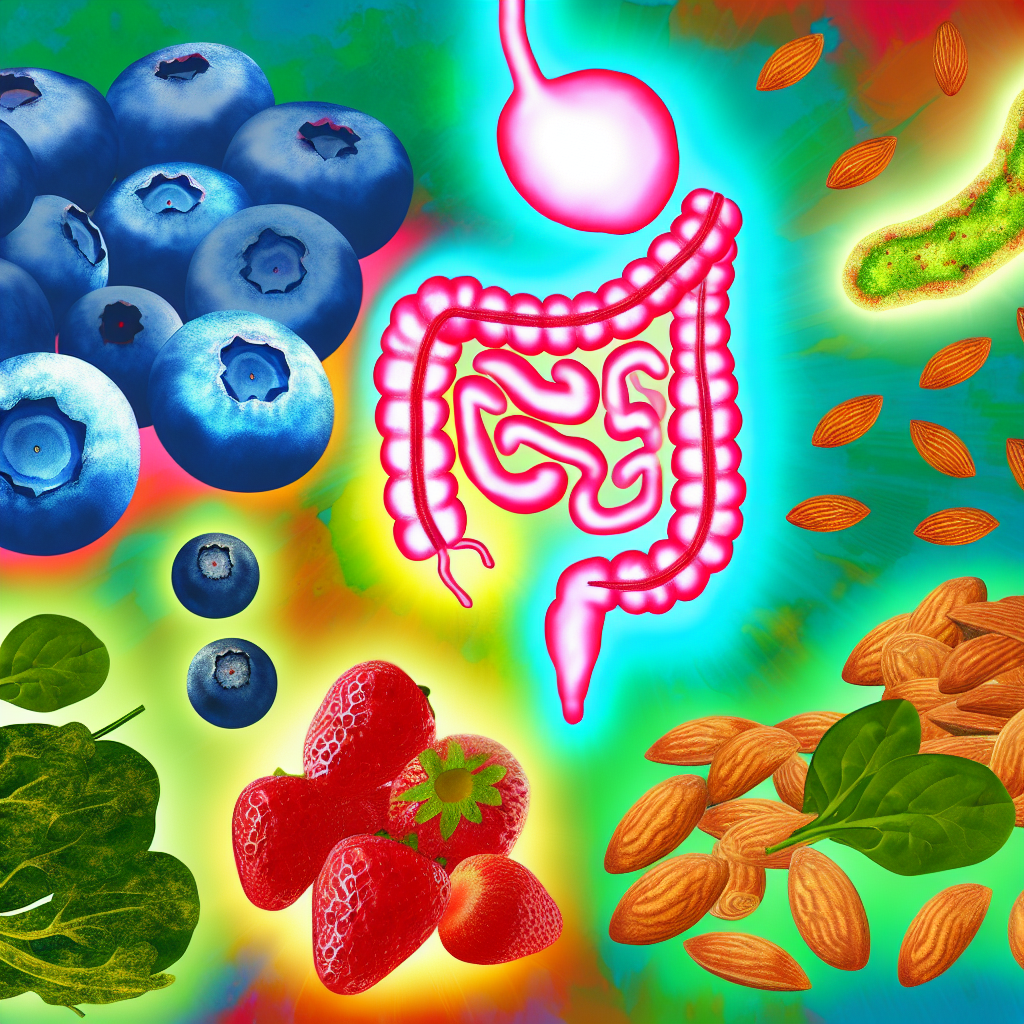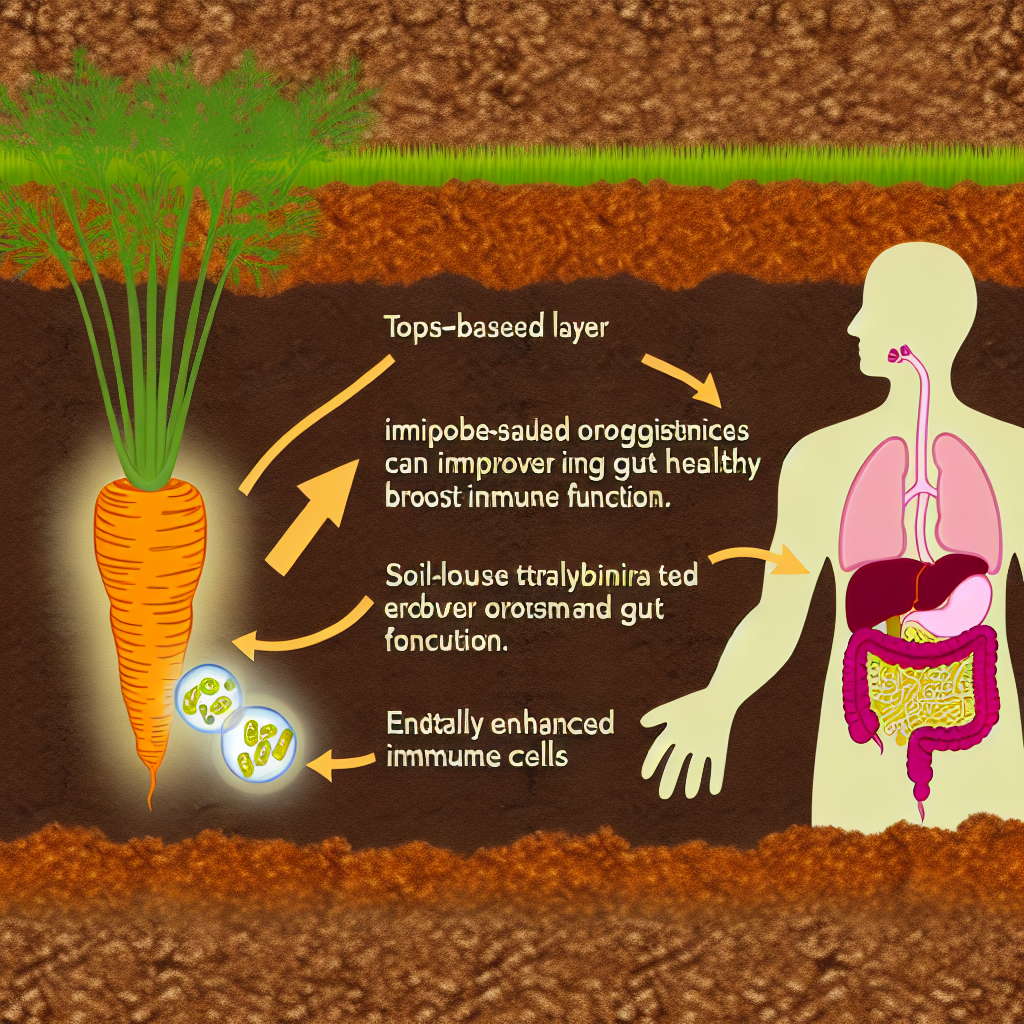The Gut-Immune-Brain Triangle: Holistic Interventions for System-Wide Health
Discover how cutting-edge science and holistic wisdom align to nurture your gut, support immunity, and enhance brain health—naturally.
Unlocking the Power of the Gut-Immune-Brain Triangle
In recent years, scientific advancements have increasingly unveiled the intricate link between three vital systems in the human body: the gut, immune system, and brain. Collectively referred to as the “gut-immune-brain triangle,” this interconnected network holds the key to understanding and fostering systemic health. As the medical community continues to explore these multidimensional relationships, integrative wellness practices and natural interventions have gained attention for their ability to support and modulate these connections holistically.
The gastrointestinal tract isn’t simply a digestion hub. Roughly 70% of the immune system resides in the gut, and the enteric nervous system—often referred to as the “second brain”—is embedded within the gastrointestinal lining. This neuronal network sends and receives signals to and from the central nervous system, substantially affecting mood, cognition, and immune responses.
Communication between these three systems is facilitated by several pathways, including:
– The vagus nerve
– Immune modulation
– Microbial metabolites (like SCFAs)
– Gut-derived neurotransmitters (e.g., serotonin, GABA)
When disrupted, one part of this triangle can throw the entire system off balance. Dysbiosis, or microbial imbalance in the gut, is linked not just to digestive issues, but also to autoimmunity, anxiety, depression, and even neurodegenerative diseases.
Let’s explore how holistic medicine—including herbal therapy, nutrition, and lifestyle changes—can optimize this essential triangle from the inside out.
Science Speaks: Evidence Behind the Gut-Immune-Brain Connection
Over the past two decades, research has consistently validated the gut as a central player in immune and neurological health.
– A 2014 study published in Nature Reviews Immunology confirms that gut bacteria play a critical role in shaping systemic immune responses, marking the gastrointestinal tract as a fundamental immune organ (Belkaid & Hand, 2014).
– A landmark paper in Nature Reviews Neuroscience demonstrated how specific probiotic strains such as Lactobacillus and Bifidobacterium communicate with the brain via the vagus nerve and gut-derived neurotransmitters—helping regulate mood and stress responses (Cryan & Dinan, 2012).
– In 2016, researchers published findings in Trends in Neurosciences showing that the human microbiome directly affects behavior, mood, and inflammation through HPA axis regulation and blood-brain barrier interactions (Foster & Neufeld, 2013).
– Dietary polyphenols also play a starring role. A 2019 study from Frontiers in Nutrition found that natural compounds like curcumin (turmeric), catechins (green tea), and resveratrol (grapes) can favorably shift the gut microbiota—enhancing both immune function and cognitive performance.
– Adaptogenic herbs such as ashwagandha, holy basil, and rhodiola stabilize the HPA axis by lowering cortisol and promoting systemic balance. Chronic high cortisol has been tied to gut permeability and immune depletion.
Together, these findings highlight the therapeutic power of natural approaches to support resilience across the gut, brain, and immune system.
6 Holistic Lifestyle Interventions for Whole-Body Health
Supporting the gut-immune-brain axis doesn’t require complex protocols—it begins with daily, intentional habits. Here are six evidence-backed interventions:
1. Fermented Foods and Probiotics
Foods like kefir, kimchi, sauerkraut, and yogurt are alive with beneficial bacteria. Supplementing with proven strains such as Lactobacillus rhamnosus and Bifidobacterium longum can reduce anxiety and enhance gut function.
2. Prebiotic Fiber for Gut Nourishment
Fuel your microbiome with prebiotic-rich foods such as:
– Inulin (from Jerusalem artichokes and chicory root)
– Resistant starches (found in cooked-cooled potatoes and green bananas)
These fibers increase short-chain fatty acids like butyrate, improving immune tolerance and mental clarity.
3. Adaptogenic Herbal Allies
Herbs like:
– Ashwagandha: Calms the HPA axis, lowers stress
– Rhodiola: Enhances stamina, balances mood
– Holy Basil: Boosts resilience and reduces inflammation
Use these herbs through capsules, teas, or tinctures for stress-adaptive support.
4. Polyphenol-Packed Superfoods
Include antioxidant-rich foods such as:
– Dark berries
– Turmeric
– Green tea
– Extra virgin olive oil
– Dark chocolate (70%+ cacao)
These phytonutrients fight inflammation, protect the mind, and feed beneficial gut microbes.
5. Mind-Body Integration Practices
Connect your mental and digestive health through:
– Meditation
– Deep breathing
– Yoga
– Vagal toning techniques (e.g., humming, cold exposure)
These activities stimulate bi-directional signaling between the brain and gut—enhancing both mood and motility.
6. Quality Sleep & Circadian Rhythm Alignment
Sleep restores immune balance and supports the gut microbiome. Aim for:
– 7–9 hours of sleep per night
– Consistent sleep-wake cycles
– Limited screen time before bed
Disruptions to circadian rhythms have been linked with microbiome imbalances and mood disorders. Quality rest is non-negotiable.
Final Thoughts: Start with the Gut, Heal the Whole
The gut-immune-brain triangle represents a paradigm shift in how we approach health: from isolated symptom management to interconnected system healing. By supporting the microbiome and the communication pathways between the gut, brain, and immune system, we can unlock vitality, emotional resilience, and robust immune function.
Integrating simple, natural therapies like plant-based nutrition, mindful practices, herbal adaptogens, and targeted probiotics places power back in your hands.
Whether you’re seeking to reduce stress, improve digestion, or enhance cognitive clarity—start with the gut. Because when your foundation is strong, your whole system thrives.
References
– Belkaid, Y., & Hand, T. W. (2014). Role of the microbiota in immunity and inflammation. Nature Reviews Immunology. [Link](https://www.nature.com/articles/nri3704)
– Cryan, J. F., & Dinan, T. G. (2012). Mind-altering microorganisms: the impact of the gut microbiota on brain and behaviour. Nature Reviews Neuroscience. [Link](https://www.nature.com/articles/nrn3346)
– Foster, J. A., & Neufeld, K. A. M. (2013). Gut–brain axis: how the microbiome influences anxiety and depression. Trends in Neurosciences. [Link](https://www.sciencedirect.com/science/article/abs/pii/S0166223613000088)
– Singh, B., & Singh, J. P. (2019). Dietary polyphenols in the prevention and management of chronic diseases. Frontiers in Nutrition. [Link](https://www.frontiersin.org/articles/10.3389/fnut.2019.00142/full)
– Miller, A. H., & Raison, C. L. (2016). The role of inflammation in depression. Nature Reviews Immunology. [Link](https://www.nature.com/articles/nrn.2016.5)
Concise Summary:
This article explores the gut-immune-brain triangle, an interconnected network that plays a vital role in overall health. It discusses the scientific evidence behind this connection and provides six holistic lifestyle interventions to support the gut, immune system, and brain, including fermented foods, prebiotic fiber, adaptogenic herbs, polyphenol-rich superfoods, mind-body practices, and quality sleep. By addressing this triangle, individuals can unlock vitality, emotional resilience, and robust immune function.

Dominic E. is a passionate filmmaker navigating the exciting intersection of art and science. By day, he delves into the complexities of the human body as a full-time medical writer, meticulously translating intricate medical concepts into accessible and engaging narratives. By night, he explores the boundless realm of cinematic storytelling, crafting narratives that evoke emotion and challenge perspectives.
Film Student and Full-time Medical Writer for ContentVendor.com




